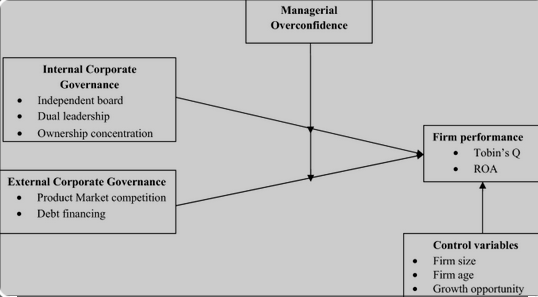Corporate governance plays a critical role in shaping the performance and accountability of organizations. It encompasses the systems, processes, and principles by which a company is directed and controlled. Effective corporate governance contributes to the long-term sustainability of a business and its ability to create value for stakeholders. Here are the key effects of corporate governance on organizational performance and accountability:

1. Organizational Performance:
a. Strategic Direction:
- Effect: Good corporate governance ensures that there is a clear strategic direction for the organization. Boards of directors, with diverse expertise, can contribute to effective strategic planning.
- Outcome: Enhanced strategic decision-making, leading to improved performance and competitive advantage.
b. Risk Management:
- Effect: Corporate governance structures are designed to identify and manage risks effectively. A strong risk management framework contributes to sustainable business operations.
- Outcome: Reduced exposure to risks, increased resilience, and improved financial performance.
c. Financial Performance:
- Effect: Transparent financial reporting and accountability mechanisms are integral to corporate governance. Shareholders and investors rely on accurate financial information for decision-making.
- Outcome: Improved investor confidence, access to capital, and a positive impact on the organization’s financial performance.
d. Innovation and Adaptability:
- Effect: Boards that foster a culture of innovation and adaptability contribute to organizational resilience and the ability to respond to market changes.
- Outcome: Increased agility, better ability to navigate market dynamics, and sustained competitiveness.
e. Stakeholder Relations:
- Effect: Corporate governance practices consider the interests of various stakeholders, including employees, customers, and communities.
- Outcome: Positive stakeholder relationships, improved reputation, and the potential for increased customer and employee loyalty.
2. Accountability:
a. Transparency:
- Effect: Corporate governance emphasizes transparency in decision-making processes, financial reporting, and overall operations.
- Outcome: Increased trust from stakeholders, reduced opportunities for fraud or misconduct, and enhanced accountability.
b. Ethical Standards:
- Effect: Strong corporate governance promotes ethical behavior at all levels of the organization.
- Outcome: Reduced instances of unethical conduct, fostering a culture of integrity and social responsibility.
c. Legal and Regulatory Compliance:
- Effect: Corporate governance ensures compliance with applicable laws and regulations, minimizing legal risks.
- Outcome: Avoidance of legal issues, regulatory penalties, and protection of the organization’s reputation.
d. Board Accountability:
- Effect: Boards of directors are accountable for their decisions and actions, ensuring they act in the best interests of the organization.
- Outcome: Improved decision-making, responsible governance, and increased credibility with stakeholders.
e. Internal Controls:
- Effect: Corporate governance structures establish robust internal control mechanisms to safeguard assets and ensure accurate financial reporting.
- Outcome: Reduced instances of fraud, errors, and mismanagement, contributing to organizational stability.
In summary, effective corporate governance is essential for optimizing organizational performance and ensuring accountability. Well-governed organizations are better positioned to navigate challenges, respond to changing market conditions, and build enduring relationships with stakeholders. The positive effects of corporate governance extend beyond financial performance to encompass ethical behavior, social responsibility, and the overall sustainability of the organization.
